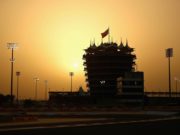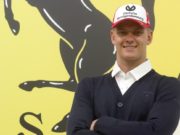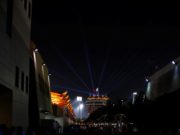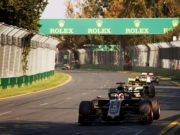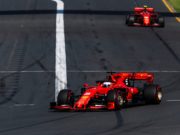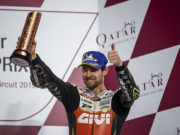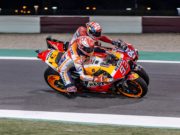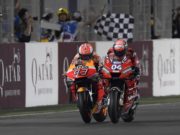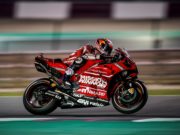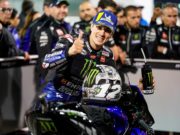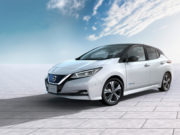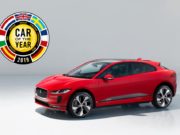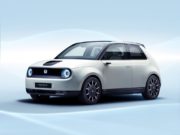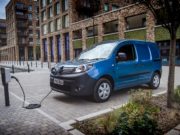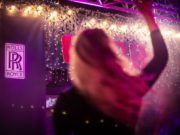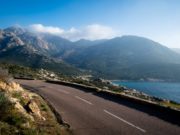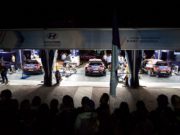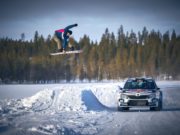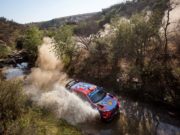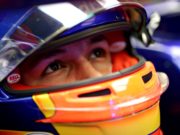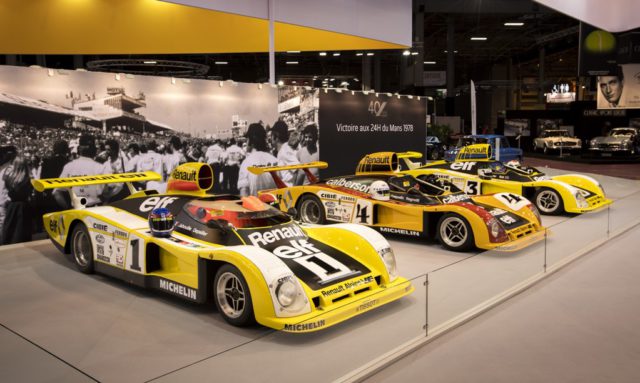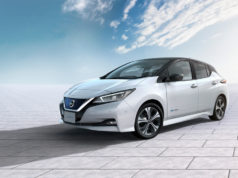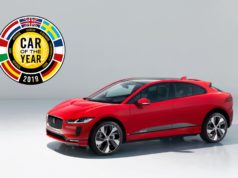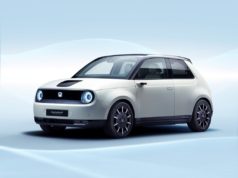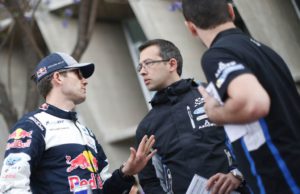Groupe Renault announced that Alpine will be present at the 2018 Retromobile Show which will run at the French capital’s Paris Expo Porte de Versailles complex on February 7-11. There the brand will mark the 40th anniversary of its Le Mans triumph.
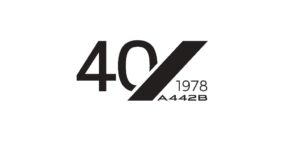 It was almost 40 years ago – on 10th June 1978 – that an entry four Renault-Alpine prototypes lined up for the start of the 24 Hours of Le Mans
It was almost 40 years ago – on 10th June 1978 – that an entry four Renault-Alpine prototypes lined up for the start of the 24 Hours of Le Mans
Founded by a skilled driver – Jean Rédélé – Alpine is a brand whose history is punctuated by success in motorsport, from the Rallye Monte Carlo to the Le Mans 24 Hours. Even if the characteristics of the A106 ‘Coach’ did not particularly lend themselves to racing, in the hands of drivers of the calibre of Jacques Féret and Jean Vinatier, it nonetheless succeeded in securing some very creditable results. Motorsport also served as the catalyst for the development and evolution of the A108, while providing the baseline for the A110.
Beginning in 1963, Alpine pitted itself against the gruelling 24 Hours of Le Mans, targeting the ‘Performance Index’ and ‘Efficiency Index’ accolades rather than outright victory. With their small Gordini engines, the Alpines stood out for their aerodynamic efficiency. Two victories ensued, in 1964 with the M64 crewed by Henry Morrogh/Roger Delageneste and again two years later with the A210 piloted by Jacques Cheinisse/Roger Delageneste.
The Alpine name also achieved success in single-seaters
That happened with Henri Grandsire winning the French F3 Championship in 1964. Several years later, Patrick Depailler (1971) and Michel Leclère (1972) repeated the feat.
In rallying
The A110 Berlinette swiftly showed itself to be a potent force. In 1968, Gérard Larrousse came close to winning in Monte-Carlo, but it was the team of ‘Musketeers’ who truly earned the Dieppe-based manufacturer its spurs within the sport. Alpine-Renault sporting director Jacques Cheinisse recruited a ‘dream team’ composed of Jean-Pierre Nicolas, Jean-Claude Andruet, Bernard Darniche and Jean-Luc Thérier. Other drivers would subsequently bolster this legendary quartet, such as Ove Andersson who triumphed in Monte-Carlo in 1971.
In 1973
the Alpine-Renault squad competed for the very first World Rally Championship title. The season began superbly, with a one-two-three finish for Andruet, Andersson and Nicolas in Monte Carlo. Across 13 rounds, the Berlinette won six times and on every type of terrain: Monte Carlo (Andruet), Portugal (Thérier), Morocco (Darniche), Acropolis (Thérier), Sanremo (Thérier) and Tour de Corse (Nicolas). The last of those victories saw Alpine conclude the campaign in fine style, with another top three lock-outs to write the closing chapter of an extraordinary story. These results crowned Alpine-Renault World Champion, ahead of rivals Fiat Abarth and Ford.
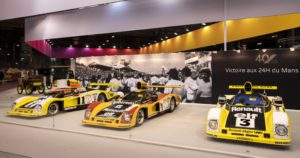 The 1973 season also witnessed the re-launch of Alpine’s endurance racing programme
The 1973 season also witnessed the re-launch of Alpine’s endurance racing programme
It had been halted after the disappointment of the A220 at the end of the 1960s. This time, the brand had the top step of the podium firmly in its sights. Victory edged closer year by year until it was finally achieved in 1978. Behind the wheel of the Alpine Renault A442B, Jean-Pierre Jaussaud and Didier Pironi triumphed ahead of the A442 which came fourth.
With its mission accomplished, Renault was able to turn its attention towards Formula 1 with its 1.5-litre V6 turbo engine.
The Alpine A310 similarly enjoyed its days in the sun, tasting glory with Jean Ragnotti, Bruno Saby and Jean-Pierre Beltoise – French Rallycross Champions in successive years from 1977 to 1979 – as well as Guy Fréquelin, the 1977 French Rally Champion.
Following the organisation of the Alpine Europa Cup, the brand’s motorsport activities drew to a close in 1988.
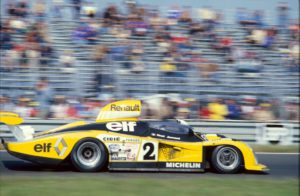 In 1978, scrutineering took place on the Tuesday before the race
In 1978, scrutineering took place on the Tuesday before the race
Four Renault-Alpines turned up at the Quinconce des Jacobins in centre of Le Mans. The №1 A443’s crew were Patrick Depailler and Jean-Pierre Jabouille. This car was new. Jean-Pierre Jaussaud and Didier Pironi’s №12 A442B, the №13 A442A shared by Derek Bell and Jean-Pierre Jarier and the №4 A442A – entrusted to José Dolhem, Guy Fréquelin and Jean Ragnotti – had already competed in the race the previous year.
The №1 Renault-Alpine A443 topped the order at the 18-hour mark before retiring. Still, Jabouille did the fastest lap in the race.
The №2 Renault-Alpine A442 B of Pironi and Jaussaud took the leading position. They successfully defended their lead for the remaining quarter of the race to win the world’s biggest endurance race.
Gérard Larrousse managed the squad. He fielded three different versions of the car in his bid to win the French classic. There were two A442s, an A442 B and an A443. The former had appeared competitively in previous seasons. But the other two prototypes were developed especially for the 1978 24 Hours of Le Mans.
#Alpine vous donne rendez-vous jusqu’au 11 Février au Salon Rétromobile pour célébrer les 40 ans de sa victoire aux 24h du Mans au volant de son #A442B. pic.twitter.com/PgM3aO1cCv
— Alpine (@alpine_cars) February 7, 2018


